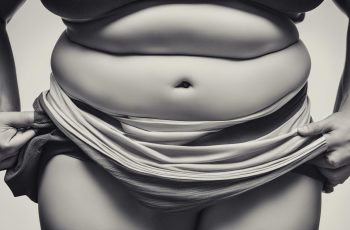Insomnia Remedies That Can Help If You Can’t Sleep
The few times you manage to get into bed at a reasonable hour, you find yourself staring at the ceiling with your eyes wide open and your thoughts racing, a good night’s sleep seeming further away with each passing second.
You’re not the only one feeling this way. Insomnia is a problem that affects a third of all American adults, according to the National Sleep Foundation (NSF). An additional 10% have chronic insomnia, meaning they have trouble sleeping at least three nights a week over a period of three months.
In addition to drug side effects and medical conditions including depression and hyperthyroidism, other factors such as worry, stress, a person’s nutrition, and even their age can contribute to insomnia.
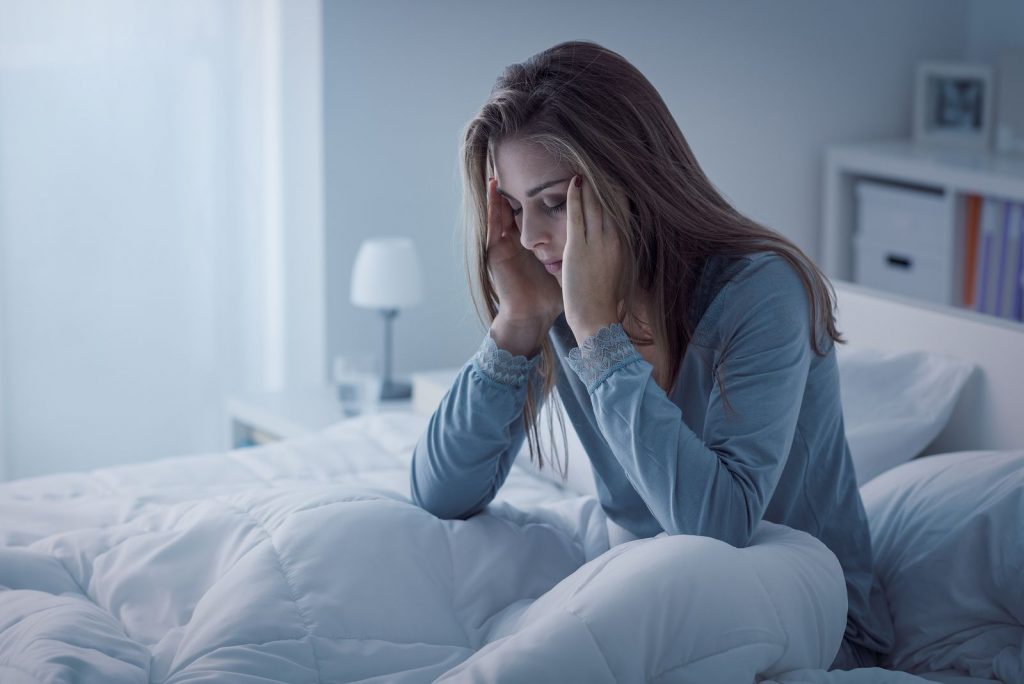
Cutting back on caffeine and alcohol may have already done the trick for you if you suffer from insomnia on a regular basis. According to a survey from BCC Research, Americans spent $41 billion on sleep aids and treatments in 2015, which includes pharmaceuticals, high-end mattresses and pillows, white-noise devices, and more. However, it’s understandable if you’re hesitant to solely rely on pharmaceuticals.
Short-term sleep aids, such as zolpidem and zolpidem tartrate (zolpidem tartrate), should be used with caution because they can result in hangovers the next day or cause sleepwalking while you are asleep. When taking Ambien, the FDA advises against driving or engaging in any other activity that requires you to be fully awake the following day, because the medicine may linger in your system at levels that could impair your ability to function.
However, there are safe and efficient natural sleep cures, such as lifestyle adjustments, that you can use. Experts, on the other hand, believe that behavior change is the best technique, even if it takes some time to see results.
Mindfulness-based stress reduction and other relaxation practices such as music-assisted relaxation can be useful, according to the National Center for Complementary and Integrative Health. A study published in November 2017 in the journal Sleep indicated that cognitive-behavioral therapy (CBT) was much more successful than other therapies, including medicines and even yoga, in treating insomnia in more than 500 women.
Find more home cures here. For a better night’s sleep, check out the following 11 insomnia remedies from experts.
1. Listen to calming music
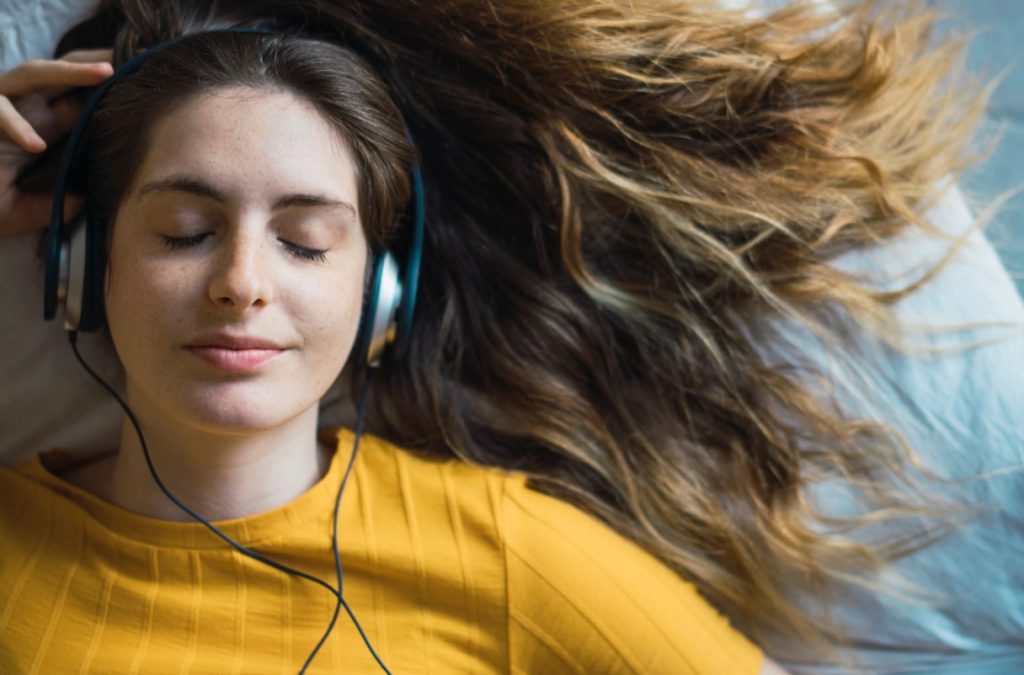
While a possible remedy for insomnia: listening to soothing music as you drift off to sleep. Listening to music before going to bed, according to a study published in August 2015 in the Cochrane Database of Systematic Reviews, may help with sleep quality. Choosing calming background music is key; make sure it is set to turn off after a certain amount of time, especially when you are already dozing off.
2. Doze Off Quicker by Rocking in a Rocking Chair
Rocking a baby back and forth in a car seat or in a mother’s arms is well-known to induce sleep. Adults can use the same trick as children. Preliminary research shows that napping in a hammock-like bed helps people fall asleep faster and sleep more deeply than sleeping in a regular bed. The gently swinging feeling seems to promote brain activity that fosters deep slumber. It’s possible that this is the case. You may not be able to sleep in a hammock every night, but you may simulate the motion by relaxing in a rocking chair before going to bed.
3. Shutting down for an hour before you go to sleep should be your new nightly ritual!
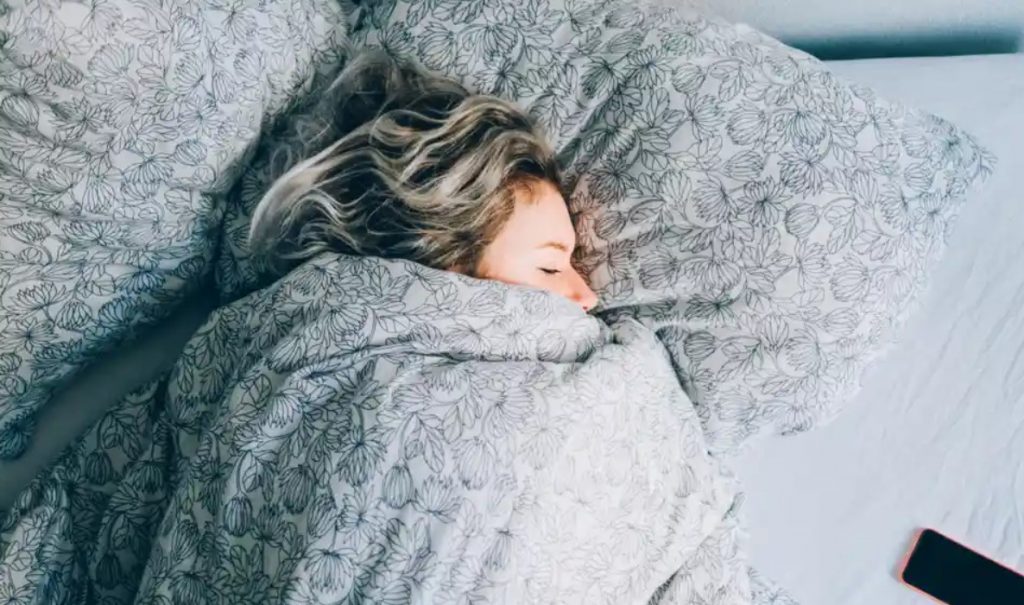
Sleep, according to sleep specialist and clinical psychologist Dr. Michael Breus, Ph.D., author of The Power of When “is not an on-and-off switch.” As the saying goes, “Your body needs time to unwind and get ready for sleep.” That’s why Dr. Breus suggests the “Power-Down Hour,” a three-part regimen. Complete any last-minute errands in the first 20 minutes of your downtime. Brush your teeth and put on some pajamas in the next 20 minutes. The final 20 minutes of your sleep should be spent lying in bed and meditating. During this time, keep your attention on your breathing pattern and push away any negative ideas that may arise.
4. You’ll nod off if you backward count sheep
Distract yourself from going through the events of the day as soon as your head strikes the pillow if your mind starts racing as soon as it does. One piece of advice Breus offers his patients: Count backward from 300 in threes, starting at the top. Due to the difficulty of solving the problem in your head, “your brain is forced to focus on anything other than its anxieties,” he argues.
5. Perform a Short Session of Gentle Yoga Before Going to Bed
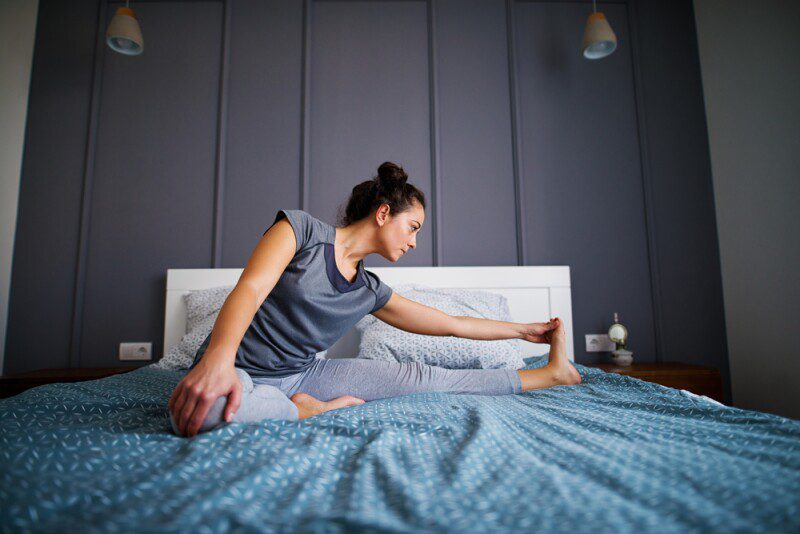
The physician director of the Center for Sleep and Wake Disorders in Chevy Chase, Maryland, advises patients to relax their muscles 15 minutes before going to bed by doing yoga-like poses (such as neck and shoulder rolls) and arm and back stretches. Slowly, but surely. When it comes to sleeping, “the idea is to relax your muscles to prepare your body for a nice night’s sleep, not raise your heart rate,” she says.
6. You’ll sleep better if you exercise often
For a long time, regular physical activity has been linked to better nighttime sleep. Despite the fact that much of the study has been done on people who do not suffer from insomnia, studies have shown that regular exercise can enhance the quality and duration of your sleep if you do. People who exercised 150 minutes per week for six months had much fewer insomnia symptoms, according to a study published in the Journal of Sleep Research in October 2015. Depression and anxiety symptoms were also dramatically reduced in this group of people.
7. Morning Workouts May Provide Even More Benefits
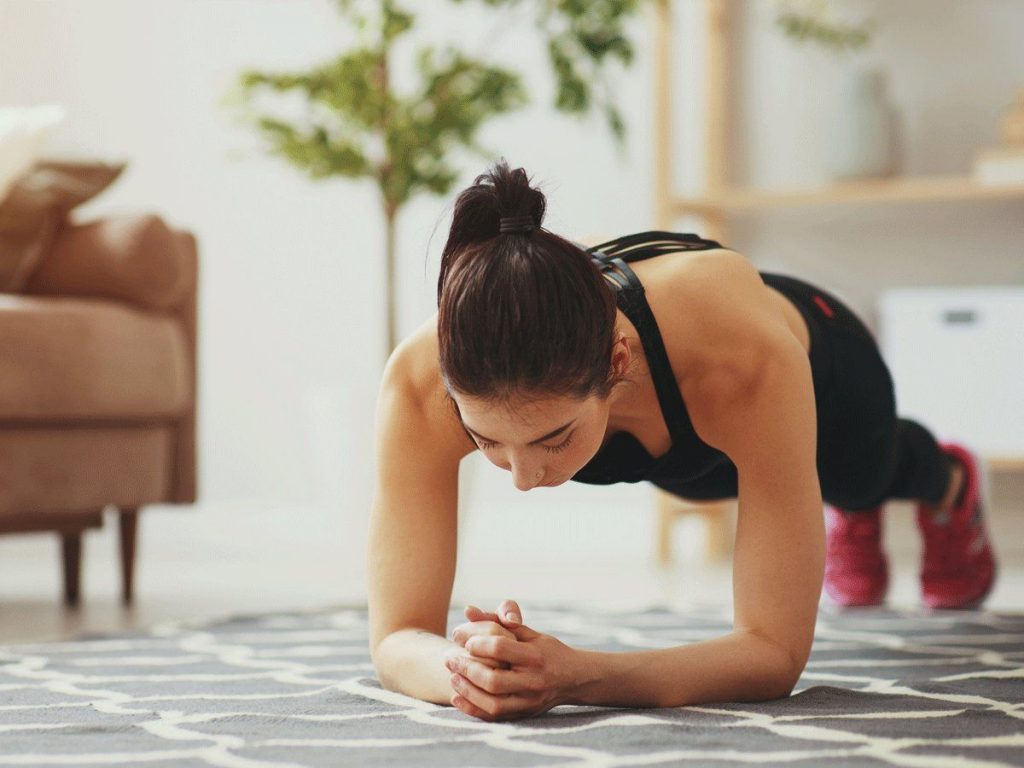
Taking a morning workout may help you get a better night’s sleep than exercising in the afternoon or at night. Appalachian State University researchers in Boone, NC, presented their findings at the 58th annual meeting of the American College of Sports Medicine. They found people spent 85 percent more time in light sleep and 75 percent more time in deep sleep when they exercised at 7 a.m. than they did when they exercised later in the day. Researchers believe that early-bird workouts impact levels of stress hormones in a way that leads to greater sleep quality later in the day. These findings need to be verified through additional investigation.
8. To End the Night, What About Some Tart Cherry Juice?
It’s well-known that alcohol is a sleeping saboteur; it may help you drift off to sleep, but it messes with your circadian rhythms, forcing you to wake up throughout the night. Cherry juice, on the other hand, is known to contain naturally high levels of melatonin, a hormone that aids in the regulation of your body’s sleep-wake cycles, which may help ensure a restful night’s sleep. After drinking sour cherry juice for two weeks, participants with insomnia improved their sleep quality and quantity, according to a study published in the American Journal of Therapeutics in March 2017. Cherry juice is thought to be safe, but if you have a history of high blood sugar, you should talk to your doctor before consuming it.
9. Keep in Mind the Value of a Regular Bedtime Routine
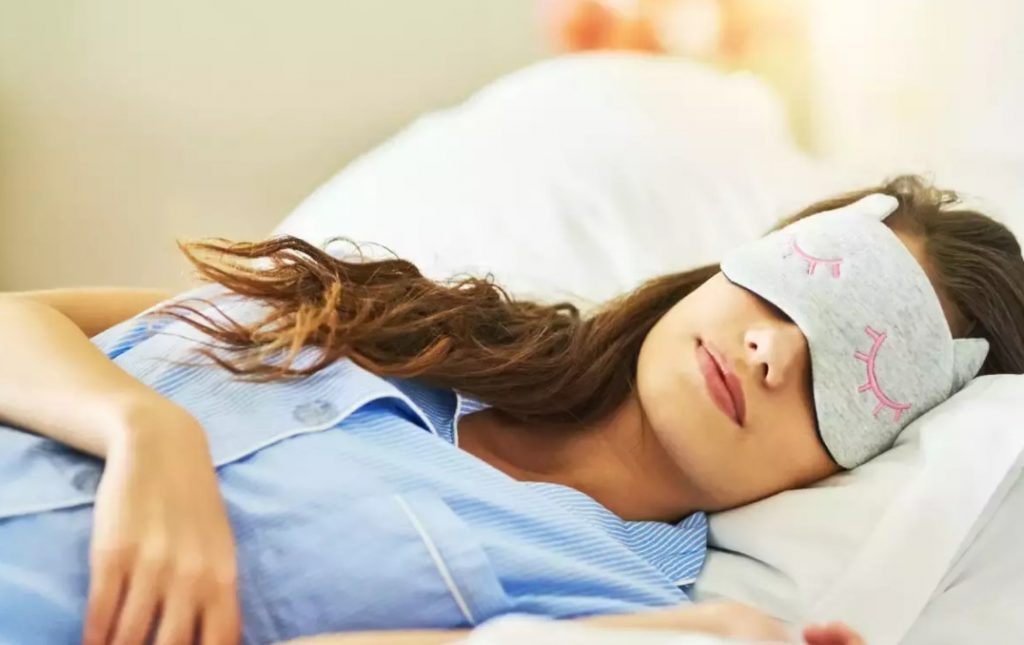
Stay within 30 minutes of your typical bedtime even if you’re exhausted. Dr. Emsellem warns that going to bed hours earlier than usual may disrupt your body’s natural circadian rhythms. It’s essential to have a regular schedule in order to avoid insomnia. A schedule can be a pain, but your brain thrives on structure. If you’re prone to insomnia, don’t take a nap during the day, even if you had a bad night’s sleep the night before.
10. On the weekends, resist the temptation to sleep in (if you can)
According to the National Sleep Foundation, you can’t make up for a lack of sleep during the week by sleeping in on the weekends. As a result, if you skip four hours of sleep each week, you’ll have to make up for it by sleeping in on Saturday and Sunday. Pick a more appropriate weekday bedtime and stick to it instead. The NSF recommends that you gradually move your bedtime back by 15 minutes at a time to help you acclimate. So, if your usual bedtime is 11:30, try going to bed at 11:15 for a few nights and moving up to 11, then 10:45 until you reach your ideal bedtime, which for most people is between 7 and 9 hours before your alarm goes off the next morning. This is a good strategy for anyone who struggles with getting enough sleep.
11. Keep Your Bedroom at a Comfortable Temperature for Rest and Relaxation
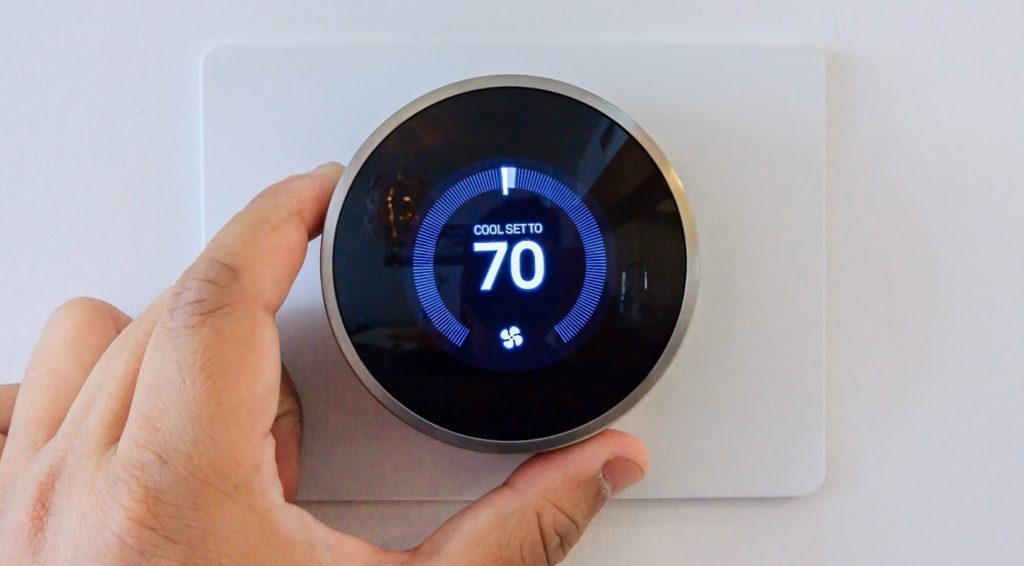
Room temperatures between 60 and 67 degrees Fahrenheit are recommended by the National Sleep Foundation. In one study, researchers at the University of Pittsburgh discovered that participants with insomnia who wore a customized cap meant to lower the brain’s temperature fell asleep and slept for about the same amount of time as those who didn’t. It’s because of this that it works: Because of this, the cooling cap helped to regulate sleep cycles by decreasing brain metabolic activity. There is no need for a particular gadget to improve your sleep. A warm welcome from the sandman can be made easier by keeping your bedroom cold and dressing in light, airy clothing (or even nothing at all!).
If you know someone who might like this, please click “Share”!

